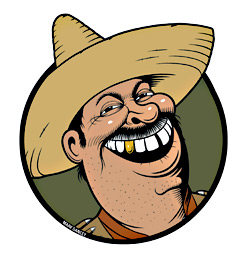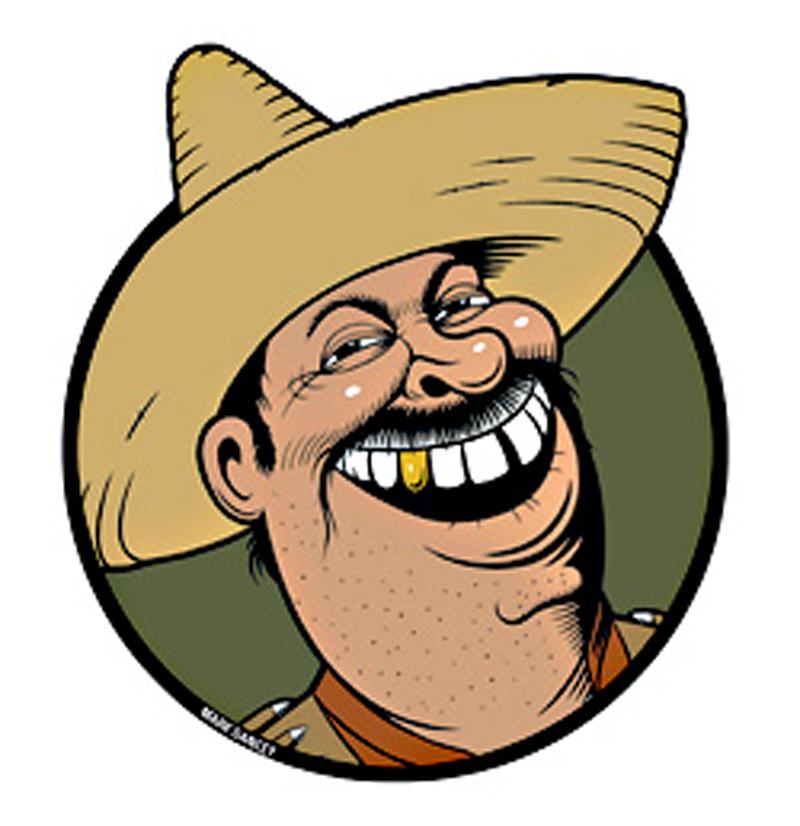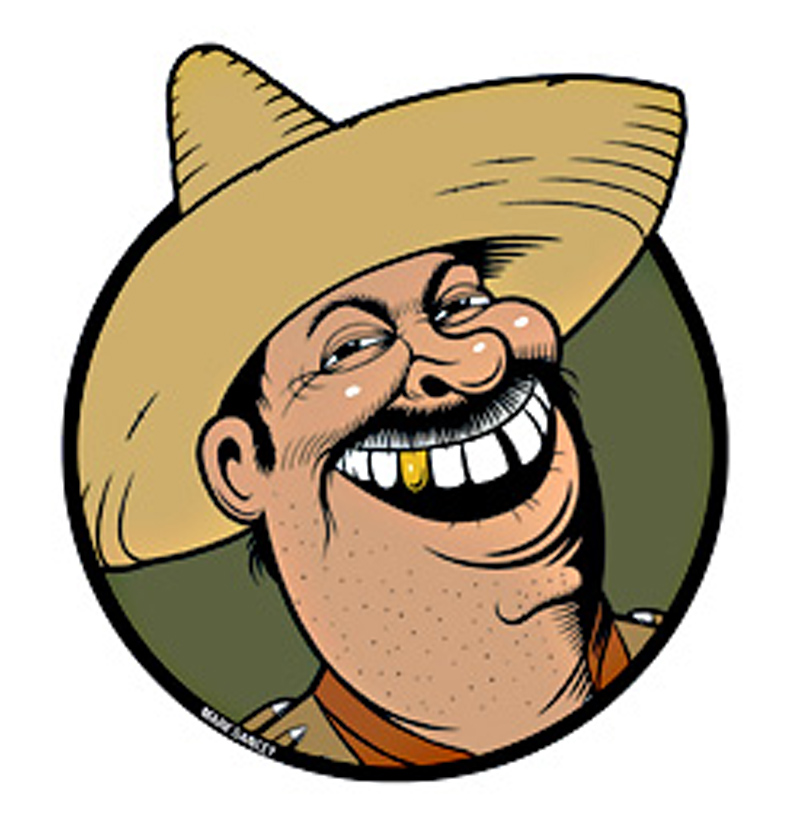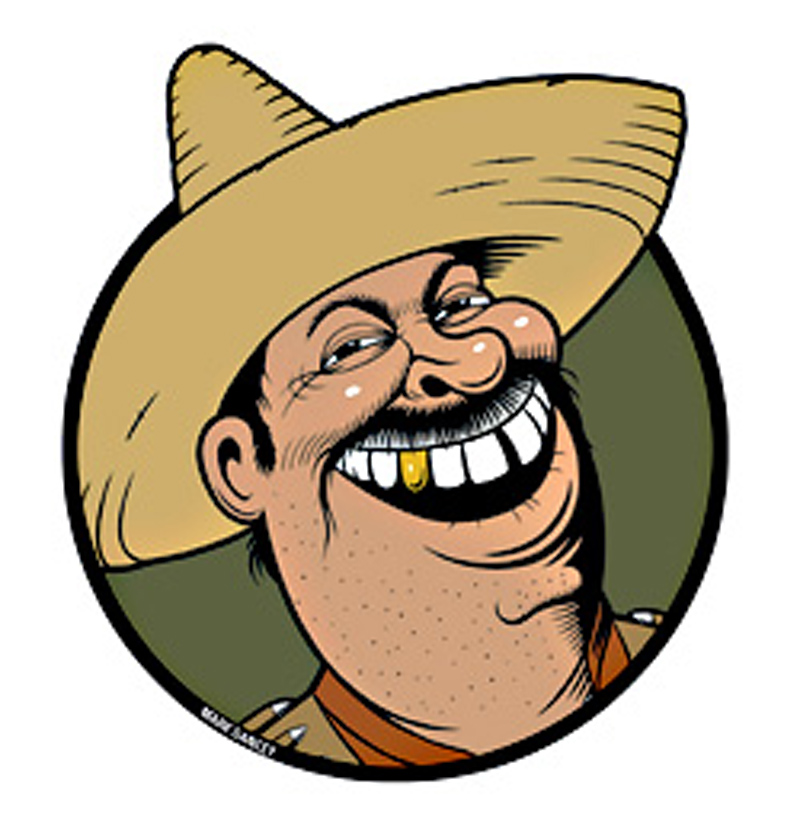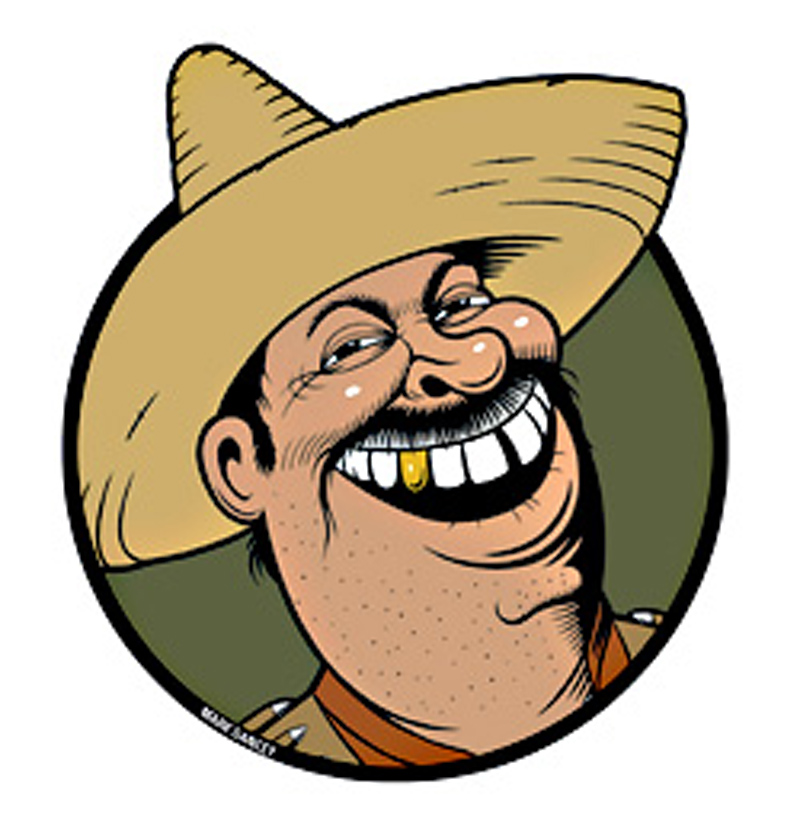Dear Mexican,
For decades, I’ve heard Mexicanos refer to one another as güey. For example, the other day I overheard one Mexicano refer to his amigo as “pinche güey,” and the amigo responded with, “Ay, güey.” What’s up with güey?
Cuss ‘n Hoots
Here’s my request: I would like to ask for translations of all the smutty street-Spanglish put-downs my courtly maestros de Español wouldn’t have dreamed of teaching me. Pendejo—I’ve long assumed it means “hanging one,” as in, “can’t get it up”: a pansy, contemptible cake boy. Is that right? What does cabrón mean? Something relating to a goat?
Pommie
Dear Pocho and Gabacha,
Welcome to the wonderful world of Mexican-Spanish swearing, where words assume different meanings according to placement but ultimately reference gonads! Güey is derived from the word büey, which is an ox, the word Mexicans use to call someone an ass—not a hooved ass, but an ass ass. It’s the Swiss Army knife of Mexican-Spanish cussing—we use it affectionately (“¡No mames, güey!” translates as “Don’t suck dick, ass!” but actually means “Don’t bullshit me, brother!”), in anger (“Eres un pinche güey” is “You’re a fucking idiot”), or as a boast (“No me haces güey” is “You won’t make an ass out of me”). Pendejo and cabrón, meanwhile, are synonyms for “idiot,” but their actual definitions are “pubic hair” and “castrated goat,” respectively.
But Mexicans rarely use güey, pendejo, or cabrón literally. Instead, we forge them into some amazingly baroque insults. To wit: When a Mexican tells his friend, “¡Güey, no seas pendejo, cabrón!” we’re saying, “Man, don’t be an idiot, jerk!” but it literally translates as “Ass, don’t be a pubic hair, ball-less goat!”
As an Asian person, would I be considered a gabacho? Or do I fall into the yellow bucket labeled chinito, even though I’m not Chinese?
OC Asian
Dear Chino,
Like Americans assume all Latinos are Mexican, Mexicans think all Asians are chinos (Chinese). When I used to go out with a Vietnamese woman, my aunts would speak highly of mi chinita bonita—my cute little Chinese ruca. When I’d point out she was actually Vietnamese, mis tías would think about it for a bit and respond, “¡Que chinita bonita!”
But just because a Mexican calls you a chino doesn’t necessarily mean we think you’re Chinese, OC Asian. “Chino,” like so many of our swear words, has multiple negative meanings. In the colonial days, a chino was the offspring of a half-Indian/half-black person and a full-blooded Indian. This association with race also transformed chino into a synonym for “servant” and “curly.” The term “barrio chino” (Chinatown) also became a euphemism for a town’s red-light district. And a popular schoolyard refrain that all Mexican kiddies eventually chant at their Asian classmates is “Chino, chino, japones: Come caca y no me des” (“Chinese, Chinese, Japanese: Eat shit and don’t give me any”).
So why the Mexican chino-hate? After all, Chinese were the Mexicans of the world before there even was a Mexico, migrating to Latin America a couple of decades after the fall of Tenochtitlán. And our most famous native dress—the billowy, colorful costume worn by baile folklórico dancers known as a china poblana—was supposedly first worn by a 17th-century Mexican-Chinese woman. Bigotry is bigotry, though; and since Mexico’s Asian population is still small and overwhelmingly Chinese, we lump Asians into the chino category. Makes the racism easier, you know?
Dear Mexican,
Why are Mexicans known as greasers? Is it because they spread rancid lard from their dirty kitchens all over themselves?
Refry This!
Dear Gabacho,
Mira, güey, the only grease we put on ourselves is the Three Flowers brilliantine Mexican men use to lacquer up their hair to a shine so intense that astronomers frequently mistake the reflection off our heads for the Andromeda Galaxy. That puts us in brotherhood with the 1950s gabacho rebels whom mainstream society also denigrated as greasers. But the reason “greaser” maintains such staying power as an epithet against Mexicans—etymologists date its origins to the 1830s—is because it refers to, as you correctly imply, our diet. Sociologist Irving Lewis Allen devotes a chapter in his 1990 compendium of linguistic essays, Unkind Words: Ethnic Labeling From Redskin to WASP, to the predominance of foodstuffs that double as ethnic slurs in American English. “All these slurs in American slang,” writes Allen, “indicate a great historical awareness of alien ethnic food, its preparation, and the eating of it—another case of dislike for the unlike.” Allen also notes gabachos have called Italians, Greeks, and Puerto Ricans “greasers” at other times during the American experience. But the food hate goes both ways, Refry—bolillos (French rolls) and mayonesa (mayonnaise) are what we call gabachos, and in the larger scheme of things, I’d rather people call me something tasteful like grease or beans than a condiment that always smells like urine.
Got a spicy question? Then ask the Mexican at garellano@seattleweekly.com. Include a hilarious pseudonym, por favor, or we’ll make one up for you! También, a glossary deciphering some of the Mexican’s more popular catchphrases can be found at www.seattleweekly.com.
